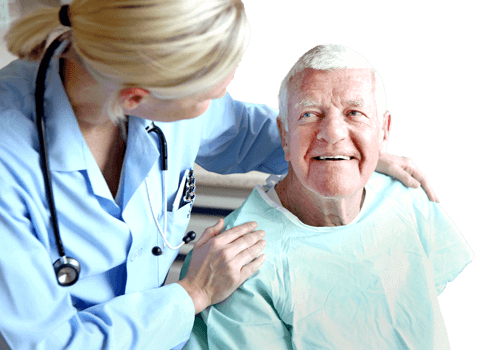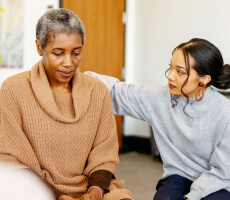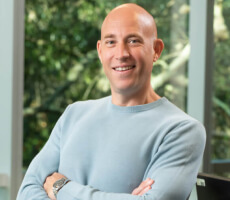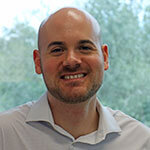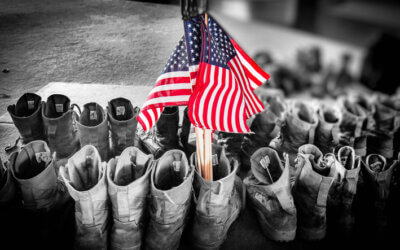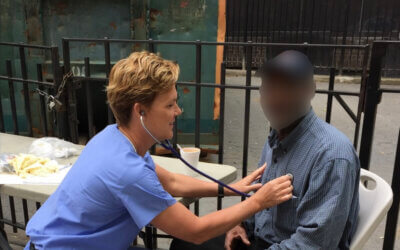Reflections of a Hospice Chaplain and the Benefits of Spiritual Care
Listen to the stories of a hospice chaplain with Chapters Health System and learn the benefits of spiritual care for patients, families and team members.
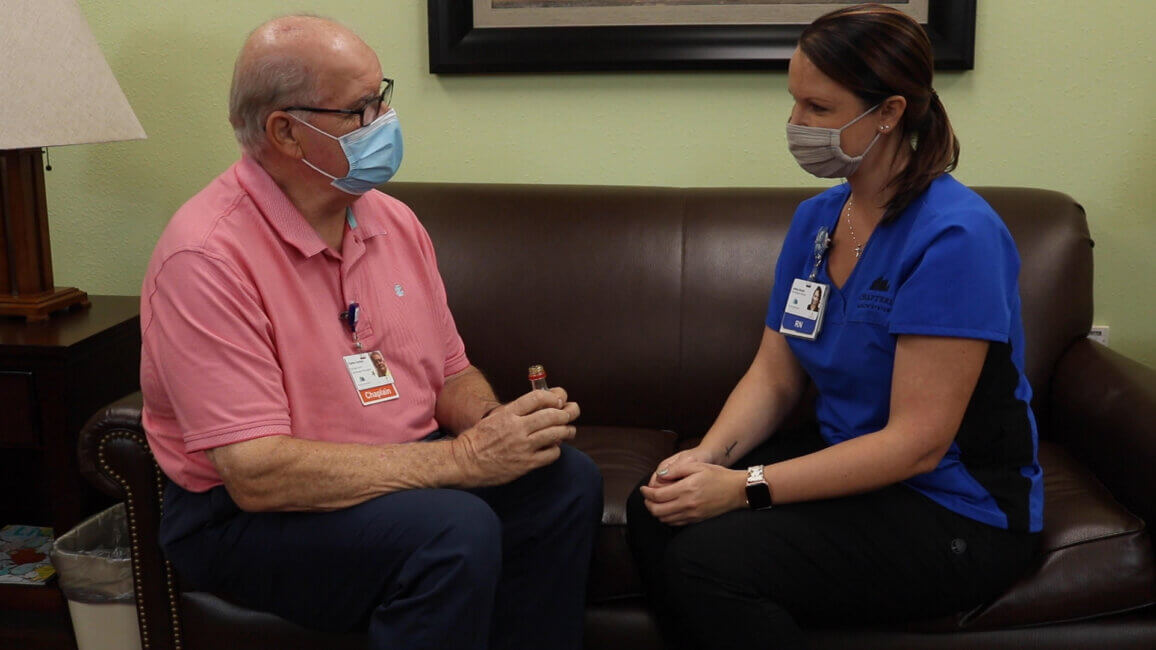
How spiritual are you? You may have asked yourself that question, wondering if you should make more room for spiritual care. Not many can provide it better than a hospice chaplain. It’s not their job to tell you who or what you should believe in. It doesn’t matter if you don’t go to a church, synagogue or mosque. A hospice chaplain’s job is to be there and provide hope in the darkest and most uncertain times of people’s lives. Charles Harkala has done that for 46 years, with 18 of those years spent as a chaplain at the Forsythe Hospice House, operated by Good Shepherd Hospice.

“What I do, and the book called the Bible, teaches us to have hope even when everything is dark, when everything is negative and bad,” said Chaplain Charles Harkala. “We’re having an epidemic of hopelessness, especially in the last year and a half to two years.”
The spiritual care that provides that hope cannot be understated. In fact, data from São Camilo University Center in São Paulo, Brazil suggests it may have an important role in the relief of suffering, influencing health outcomes and minimizing the consequences of social isolation.
So how do you provide that hope? What does a chaplain do for a family, patient or team member who needs it? The first step is simple…be where they are.
A Hospice Chaplain Goes Where You Are
“We’re not first, second or third in line. We’re last. We serve at their pleasure. We are involved in their lives where they are, whatever they need,” said Harkala.
Those needs include many of the services you would expect in the hospice setting, one-on-one counseling, funerals and affirmations. Many of the services can happen right in the chapels, which are available in all Chapters Health’s hospice houses. A chaplain’s service is meant to provide comfort, understanding and sometimes closure during some of life’s most difficult moments. There are also many moments of happiness and joy.
“Sometimes we do weddings. I have performed several weddings for RNs. They are unique in themselves,” said Harkala. “There are times as a chaplain when we do weddings for patients. It’s always humbling. I remember one of the first ones I ever did in the hospice house was so a grandfather could be there. The grandfather was a patient, and we performed the ceremony for his grandson, so he could see it.”
Service Isn’t Limited to Patients and Families
A huge part of a chaplain’s role is to provide support to team members. One way is through prayer and services, such as blessing of the hands. Human touch is such a crucial part of healthcare. A blessing of the hands with oils or water is a way to acknowledge that importance, while also honoring the spiritual aspects found in physical care. Harkala explained the significance in this short video:
Blessing of the Hands Video
As a preceptor and spiritual consultant with Good Shepherd Hospice, Harkala plays an important role in training future chaplains for the organization.
“I always tell them, you’re not just the chaplain of patients and families. You’re the chaplain of your team. We’re involved with their lives. There are tremendous needs. That is a really an honor and a privilege to be involved with our teammates.”
It’s not only a privilege. It’s an important responsibility with its own unique set of challenges. According to a 2019 study, published in the Cambridge University Press, more than 60 percent of chaplains working in hospice and palliative care reported feeling worn out because of their work as a helper and at least a one-third practiced informal self-care weekly.
A Hospice Chaplain’s Role in Bereavement
A chaplain’s job is not just limited to prayers and ceremonies. Sometimes, chaplains find themselves supporting bereavement specialists in the hospice setting.
“When I first started, I was part-time and they needed more bereavement help, so I worked in the bereavement department for a short time,” said Harkala. “Grief is lethal, it doesn’t play fair, and it comes out of nowhere. To touch on that, I’ve been privileged to participate in our Lights of Remembrance ceremonies.”
The Lights of Remembrance event is an event where families of lost loved ones can come together and support one another during the holidays. The event is organized by the Chapters Health Foundation.
“It’s my very favorite event of the year and not because I speak at it,” Harkala added. “It’s the people. They’re amazing. Grief is part of their journey for life. I always recommend to every patient and family, our bereavement services. They are awesome.”
Spiritual Care is a Calling
For Harkala, the work of a hospice chaplain is not a profession he planned on. Life experiences shaped him into an individual that heard a “calling.”
“As far as being a person of faith, that all changed when I was 21. My life became completely different. In that change, there was a call into ministry. It was the most foreign thing to me in the universe.”
Venturing into a new career always comes with uncertainty. What will I gain from this, other than a steady paycheck? How will I grow from it? In Harkala’s case, the answer was ironically appropriate.
“I’ve met so many amazing people. Usually, you go into a room to bless the family and the patient. A lot of the time, you end up being the one that’s blessed.”
Chapters Health System is committed to serving the needs of its patients, families, caregivers, health providers, partners and communities.
For more information, please call our helpful Chapters Health and HospiceHelp24® team at 1.866.204.8611 or Contact Us.
Keep Exploring

